Home fire safety
More information on how to protect your home.
The good news is, we believe that you have a lower risk of having a fire in your home. Here are a few tricks and tips we'd like to make you aware of that may help to make your home even safer.
Keep the cooker, hob and oven clean and clear to reduce the risk. Avoid storing items in them.
Stay present – Never leave cooking unattended and turn everything off if you do have to leave.
Double check any timers – especially on appliances like microwaves or ovens.
Be cautious when frying – Use a deep pan, avoid overcrowding, and watch for hot oil splatter.
Turn off appliances when finished – Always double-check before you leave the kitchen.
For more information visit our cooking safely page.
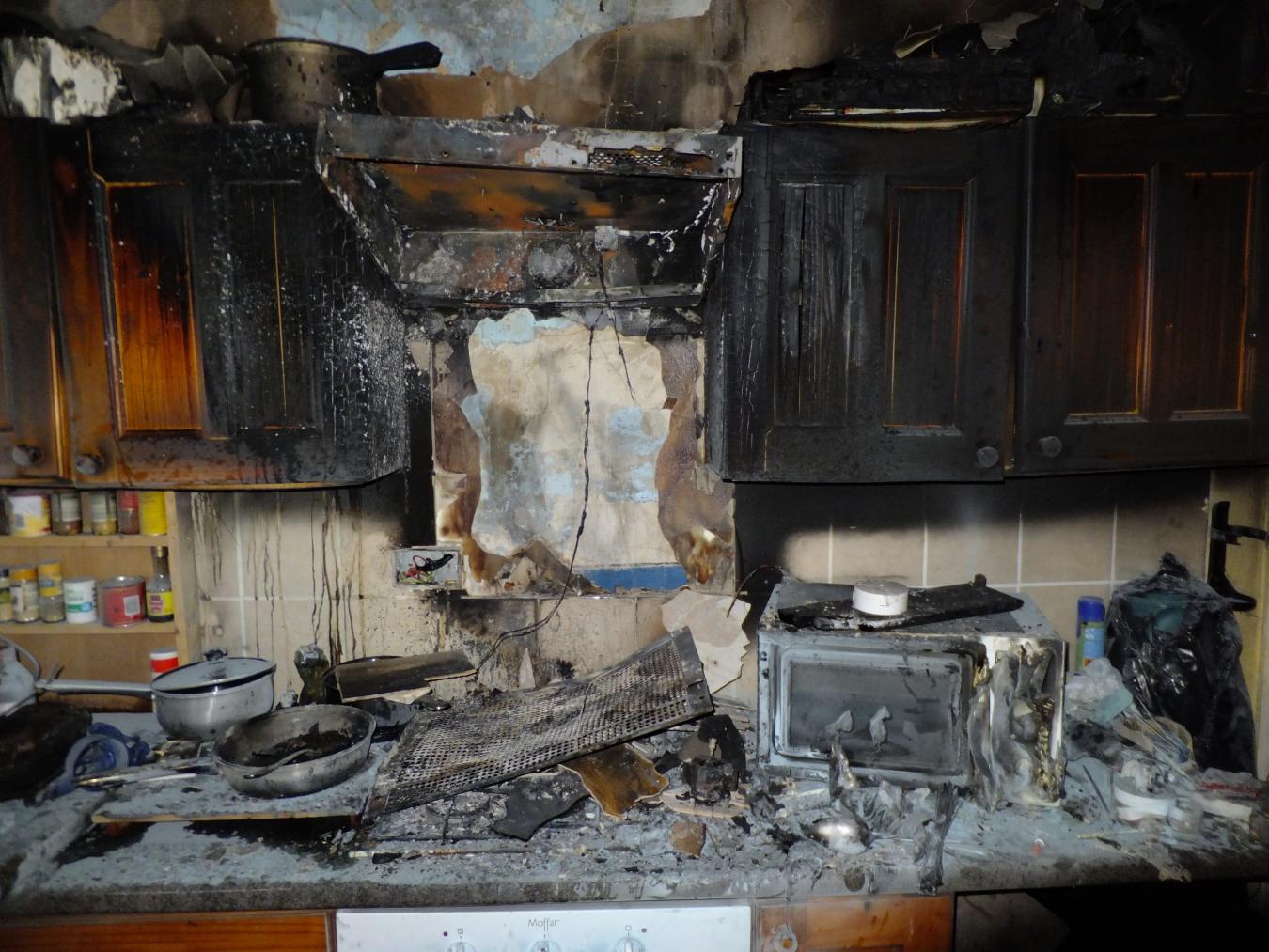
Avoid using appliances overnight, especially washing machines, dryers and dishwashers.
Charge any items with the provided charger during the day and remove once full.
Don’t overload sockets or extension cords - 1 socket for 1 plug.
Replace damaged electronics, such as those with frayed or broken wiring.
Do not charge e-bikes, e-scooters, or mobility scooters on an escape route.
To learn more , visit our electrical safety page.
Keep heaters at least 1 meter away from everything especially furniture and clothing. Avoid using a heater to dry items.
Make sure that heaters do not pose a trip risk, especially the wiring.
Use heaters with automatic shut-off if tipped or overheated.
Turn heaters off when leaving the room or sleeping.
Use fire guards with open fires.
Make sure to regularly get the chimney checked and cleaned.
To learn more, visit our heating page.
If possible, smoke outside and dispose of any ends carefully.
Always use an ashtray for cigarette butts and ashes with some water in the bottom to make sure the end are extinguished.
Only use the ashtray for cigarette waste, not other rubbish to reduce the risk of starting a fire.
Make sure ashes are cool and damp before putting them in the bin.
Avoid smoking in bed or when drowsy as you may fall asleep and start a fire.
Avoid smoking (including e-cigarettes) whilst using or in the vicinity of any oxygen provision, or when using any air flow mattresses or cushions.
Don’t throw cigarette butts off balconies or out of cars.
To learn more, visit smoking safely page.
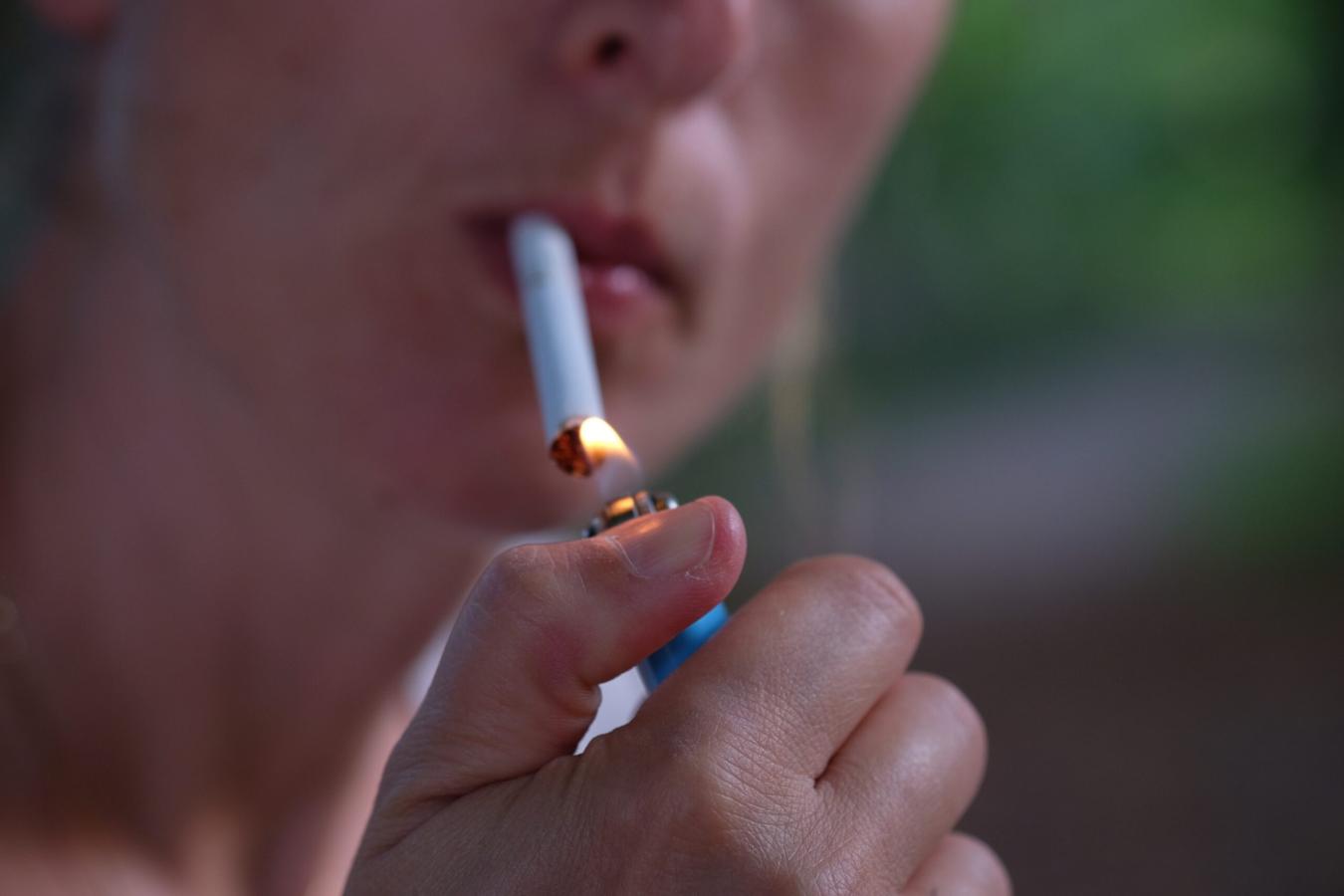
Try and keep any walkways and exits clear of clutter, including anything that could be a trip hazard or prevent you escaping.
Avoid using candles, or heaters near clutter by at least one meter.
Avoid storing flammable materials near heat sources or electrical outlets.
Regularly declutter to reduce fire hazards.
Seek help if hoarding makes safe evacuation difficult.
To learn more about the fire risks associated with clutter and hoarding visit our webpage.
Always use a proper holder on a secure surface.
Never leave a candle unattended.
Extinguish all candles before you leave the room or go to sleep.
Keep the flame well away from other items such as curtains, furniture or electronics.
Keep candles out of reach from children and pets.
Make sure lighters and matches are stored securely.
For more tips on how to use candles safely and make it less likely that they will be the cause of fire in your home visit our web page.
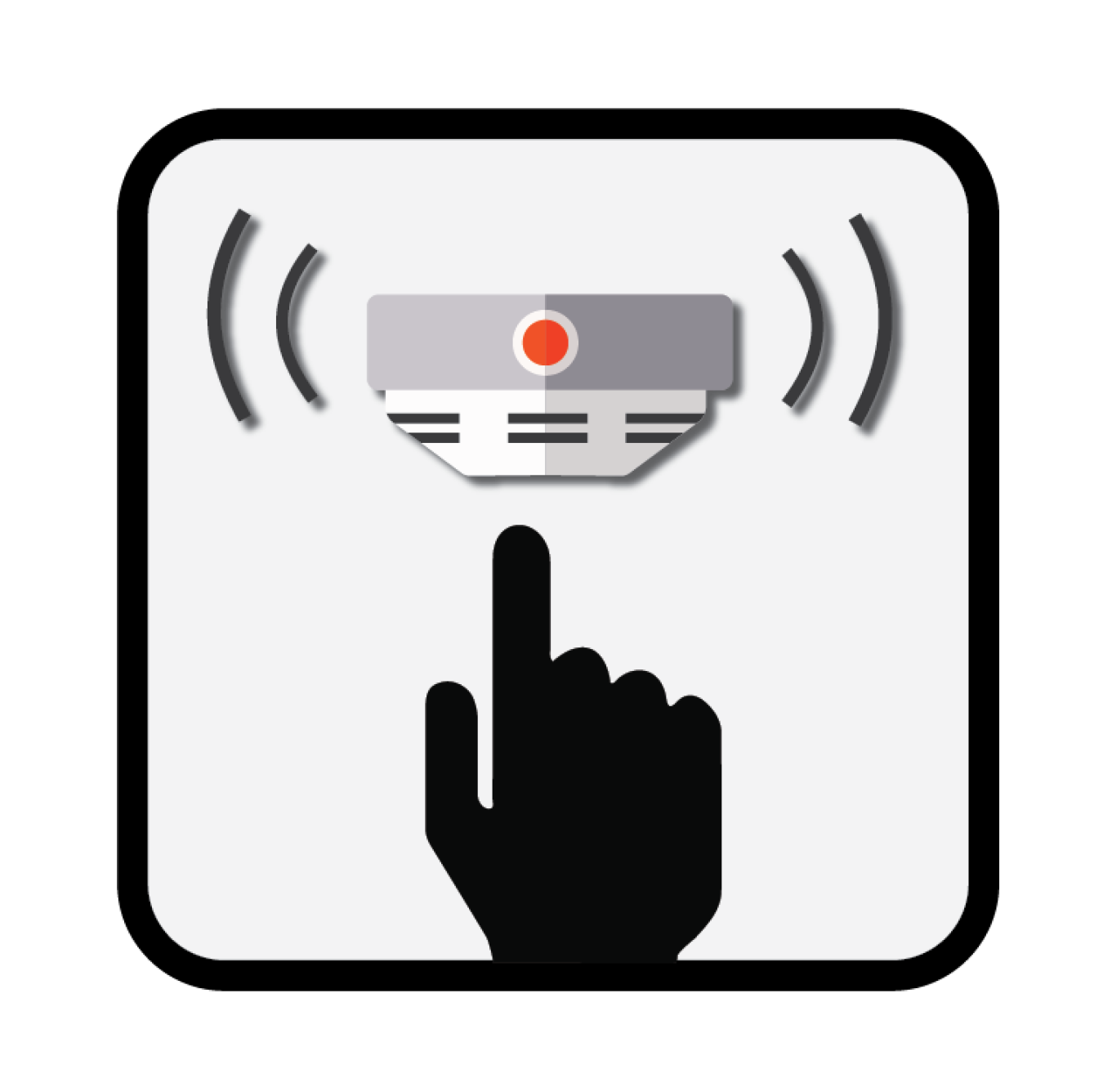
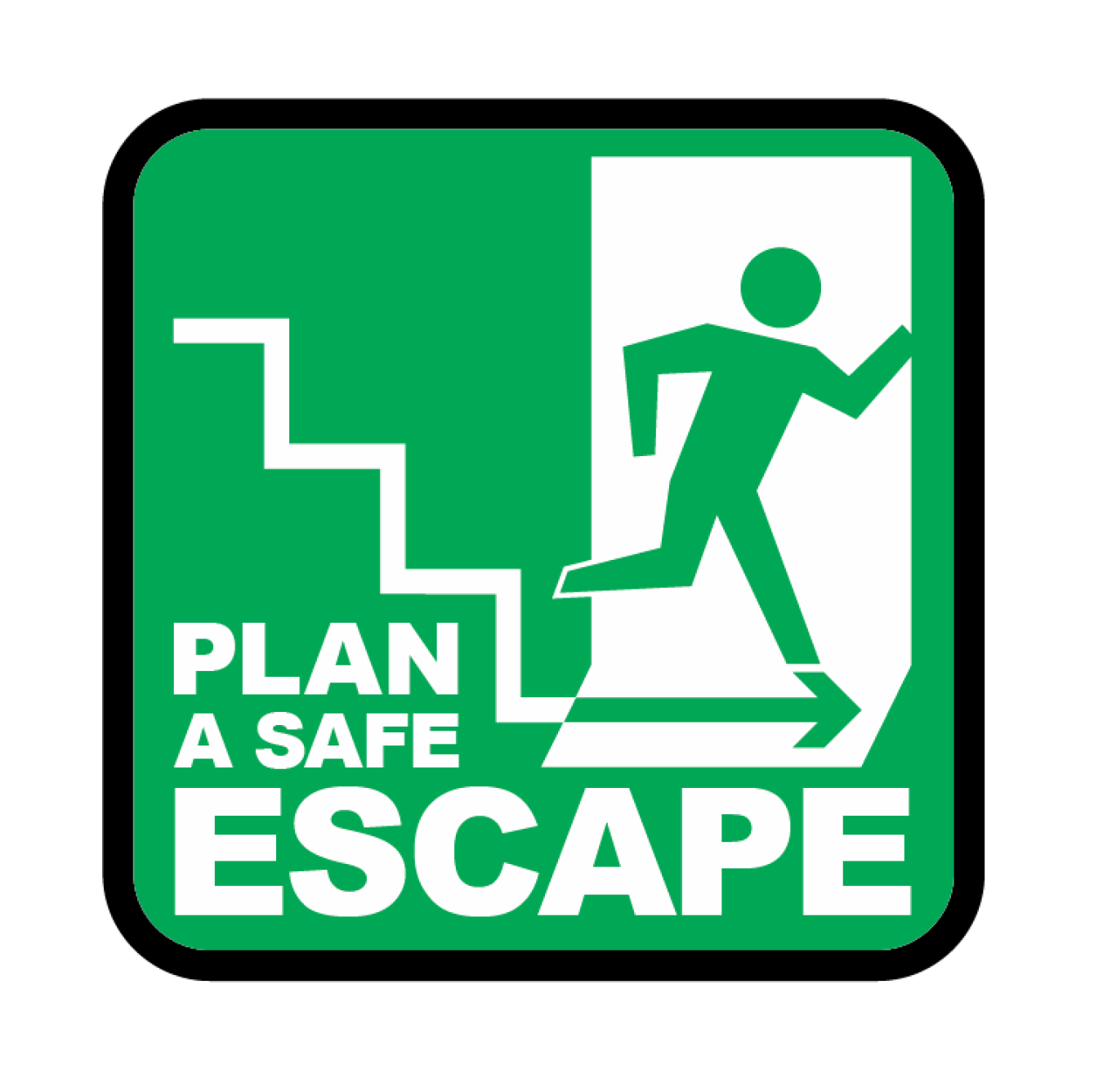
Test your smoke alarm monthly and clean every six months.
Replace batteries once a year unless it is a 10 year alarm.
Fit at least one smoke alarm on each level of your house.
You can buy smoke alarms from our recommended partner, Fire Angel.
Visit our web page for information about spotting faulty a smoke alarm.
Plan two ways out of every room, if possible.
Keep exits and pathways free from obstacles.
Practice your fire escape plan with everyone in your household.
Identify a safe meeting point outside the home.
Learn more about making an escape plan on our website.
Avoid cooking whilst drinking alcohol or if feeling drowsy from medication.
Be extra careful if smoking and avoid smoking in bed.
Be extra careful with candles and heaters.
Switch off electrical items before bed including anything on charge
Extinguish any cigarettes/candles safely
Check the cooker and any heaters are off
Shut all doors before bed, especially the kitchen door
Check your exit routes are clear
Keep keys safe in an easy to reach location
Keep a phone close in case you need to call 999
Make sure everyone in the house knows what to do in an emergency, including children and visitors
Shout to alert everyone and leave the house quickly. Don’t stop for pets or valuables — getting out safely is the priority.
If there’s smoke, stay low and close to the floor where the air is clearer.
Close doors behind you if you can to help slow the spread of fire and smoke.
Always feel doors with the back of your hand before opening. If the door feels warm, don’t open it — find another way out.
Never go back inside once you’re out. Wait in a safe place for the emergency services — going back puts lives at risk and slows down rescues.
Call 999 immediately once you are safe and clear.
More information on how to protect your home.
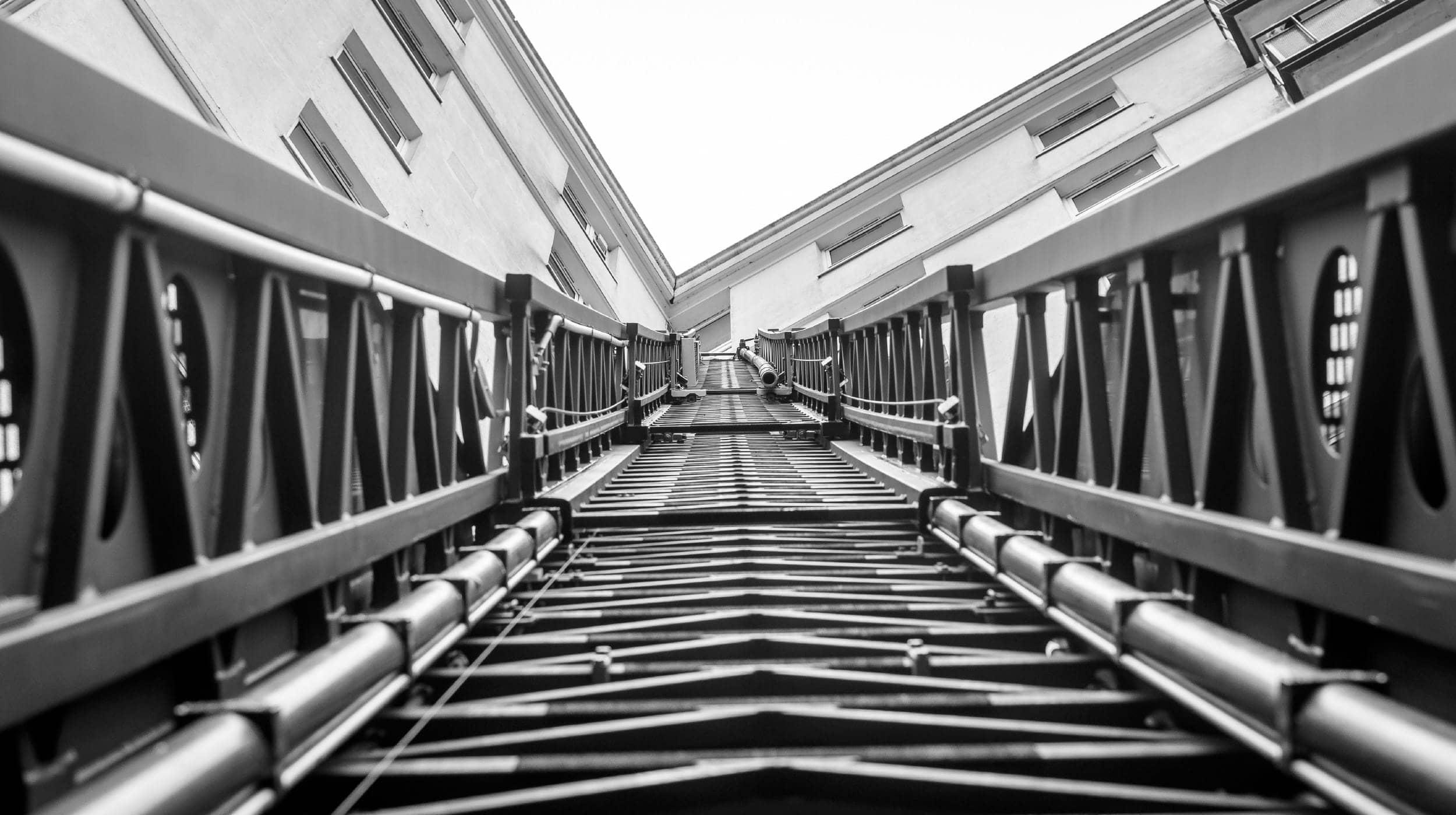
Read the article written about Lancashire firefighters deployed to Mozambique as part of UK international rescue effort
Two firefighters from Lancashire have been deployed to Mozambique to support international flood rescue operations following severe storms and widespread flooding in J...
Read the article written about Register your appliances to keep your home safe
Nearly a quarter (24 per cent) of UK homeowners admit they may not hear about a safety recall affecting an appliance they own. One in five (20 per cent) can’t remember...
Read the article written about First phase of consultation starts to shape our future
Lancashire Fire and Rescue Service has today launched phase one of a public consultation to help shape how it delivers prevention, protection and response services acr...